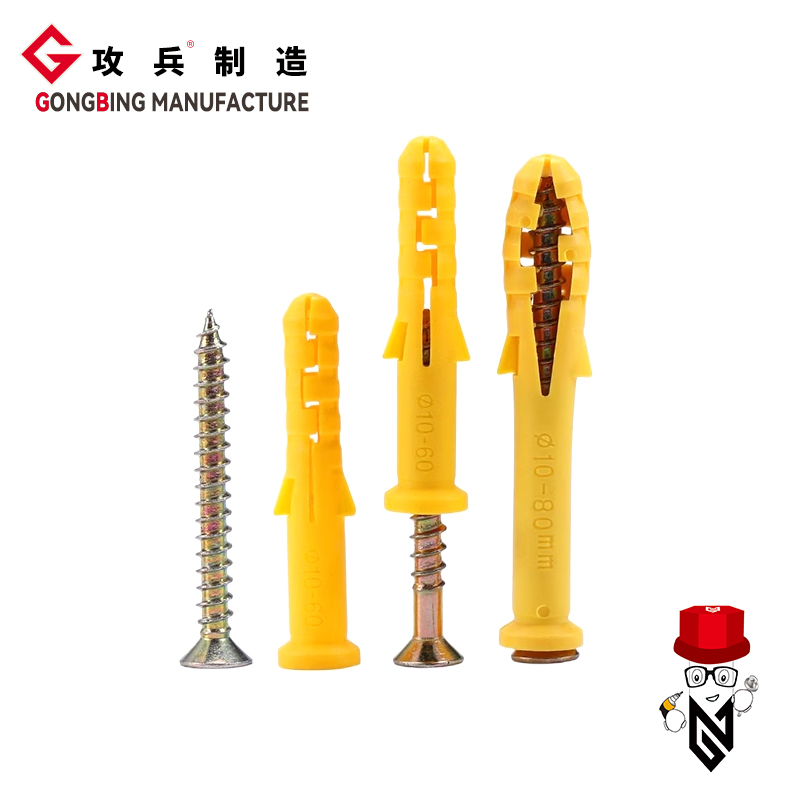Exploring the Role of Chemical Fasteners in Enhancing Concrete Construction Efficiency and Durability
The Role of Chemical Fasteners in Concrete Applications
In the world of construction and engineering, the demand for durable and reliable fastening solutions is paramount. One of the most effective innovations in this field is the use of chemical fasteners, particularly for applications involving concrete. Chemical fasteners, which include products like epoxy and polyester resin adhesives, provide a robust alternative to traditional mechanical fasteners. This article explores what chemical fasteners are, their advantages, applications, and some considerations for their use in concrete.
What are Chemical Fasteners?
Chemical fasteners refer to a category of fasteners that bond materials together using chemical adhesives. Unlike standard anchors or bolts, which rely on mechanical interlock or friction to hold materials, chemical fasteners create a strong bond at the molecular level. They come in various formulations suitable for different substrates, with those designed for concrete being particularly popular in construction.
Advantages of Chemical Fasteners
1. High Load Capacity One of the primary benefits of chemical fasteners is their ability to support substantial loads. Their adhesive properties create a bond that can often exceed the capacity of traditional mechanical anchors. This is especially useful in high-stress applications, such as structural connections and for anchoring heavy equipment.
2. Resistance to Environmental Factors Chemical fasteners demonstrate excellent resistance to various environmental conditions, including moisture, temperature fluctuations, and chemicals. This makes them suitable for both indoor and outdoor applications, as well as in harsh environments like industrial settings.
3. Reduced Risk of Damage When using chemical fasteners in concrete, there is generally less risk of causing stress fractures or damage to the surrounding material compared to traditional fasteners, which may require drilling and can introduce vulnerabilities.
4. Versatility Chemical fasteners can be used in a variety of applications, from securing railings and signage to anchoring structural beams. This versatility makes them a preferred choice for contractors and engineers looking for reliable fastening solutions.
chemical fasteners concrete

5. Quick and Easy Installation Most chemical fasteners come in user-friendly packages and can be applied with minimal equipment. Many formulations set quickly, speeding up the construction process and allowing for immediate load-bearing capability after curing.
Applications in Concrete
The applications of chemical fasteners in concrete are extensive. They are commonly used for
- Anchoring structural elements In situations where traditional anchoring isn’t feasible or would compromise the integrity of the substrate, chemical fasteners provide a powerful alternative. - Repairing and reinforcing existing structures Chemical anchors can be used to bond new components to existing concrete, creating seamless and strong connections that enhance structural integrity.
- Installing fixtures and equipment From heavy machinery to wall-mounted fixtures, chemical fasteners are ideal for providing the necessary support without the drawbacks of mechanical fastening.
Considerations for Use
While chemical fasteners offer numerous advantages, there are essential factors to consider. The correct type of adhesive must be chosen based on the specific application and environment. Factors such as the expected load, exposure to chemicals, and environmental conditions will influence the choice of resin. Additionally, proper surface preparation of the concrete is critical for ensuring maximum adhesion and load capacity.
Conclusion
Chemical fasteners represent a remarkable advancement in fastening technology, especially for concrete applications. Their combination of strength, durability, and versatility makes them a valuable asset in the construction and engineering sectors. As technology continues to evolve, the use of chemical fasteners is likely to expand, paving the way for more innovative solutions in structural integrity and safety. By understanding their benefits and applications, construction professionals can ensure they are equipped to meet the demands of modern projects efficiently and effectively.
-
Weatherproof Plastic Expansion Anchors for OutdoorNewsJun.06,2025
-
Sustainability in the Supply Chain: Eco-Friendly TEK Screws ProductionNewsJun.06,2025
-
Load-Bearing Capacity of External Insulation FixingsNewsJun.06,2025
-
Double Head Bolts: Enhancing Efficiency in Industrial MachineryNewsJun.06,2025
-
Corrosion Resistance in Chipboard Screws: Coatings for Wholesale DurabilityNewsJun.06,2025
-
Butterfly Toggle Bolts : Enhancing Structural ResilienceNewsJun.06,2025
